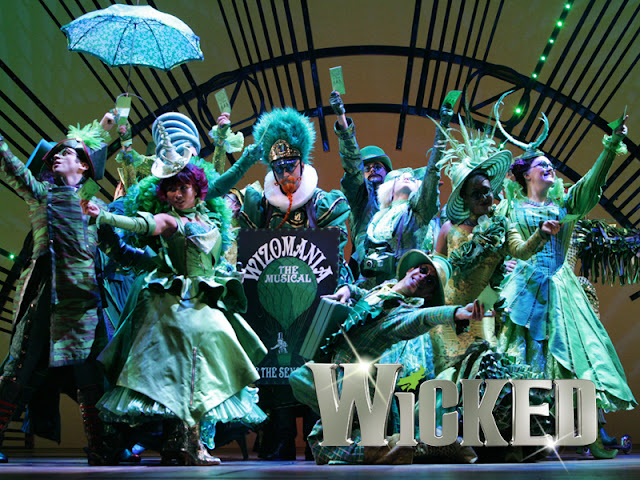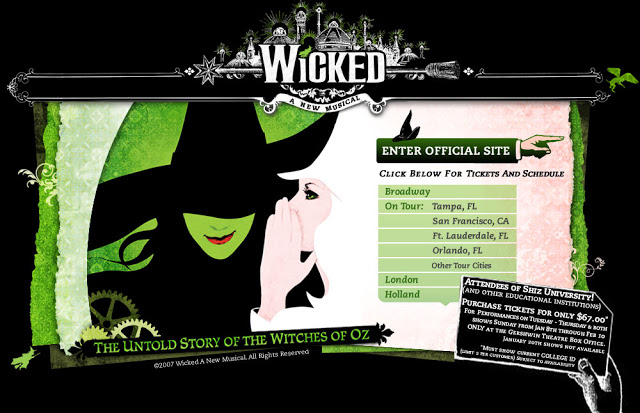 |
| Official website for Wicked |
Besides being stale and lackluster from running overlong on Broadway, with a dull cast that runs on automatic, the musical Wicked (unlike the much more intelligent and complex book) is laughable from a feminist perspective.
As it opens, Glinda the Good Witch admits to her admiring audience that she was once friends with Elphaba the Wicked Witch in college. The flashback scene that follows is a predictable faceoff of the “popular” kids led by a dazzlingly white Glinda vs the very green dumpy Elphaba and her wheelchair-bound sister Nessarose (the future Witch of the East).
 |
| Performance of “Defying Gravity” from Wicked |
Elphaba insists to the headmistress that Glinda join her in sorcery class. However, we never see this interesting bit develop. What ensues is a meh secret rivalry between good and bad witch for the affections of Fiyero. Glinda assumes he belongs to her, since they are each the gleaming epitome of style and superficiality. When Elphaba asks Glinda to accompany her to Oz to seek an audience with the Wizard, Glinda is befuddled by Elphaba’s quest for power to free the animals.
After intermission the tedium continues with the town turned against Elphaba and in favor of Glinda. Fiyero passively agrees to marry Glinda but when Elphaba turns up he instantly drops Glinda. Elphaba stages her own liquidation (the audience can see Dorothy pouring water on her behind a screen) then [spoiler alert] is mysteriously reunited with Fiyero who is now a scarecrow thanks to her spell to make him immortal.
 |
| Cast of Wicked |
It should be noted that the alternative backstory as adapted from the book is itself interesting. The Wicked Witch, exemplar of the unconventional, becomes a powerful sorceress exploited by the Wizard. And the Good Witch is a narcissistic beauty enslaved by public opinion. But as it’s played out in the musical, with the cast breaking into torturous song every 10 seconds, the original plot is watered down to a simple morality tale for eager overpaying tourists.
